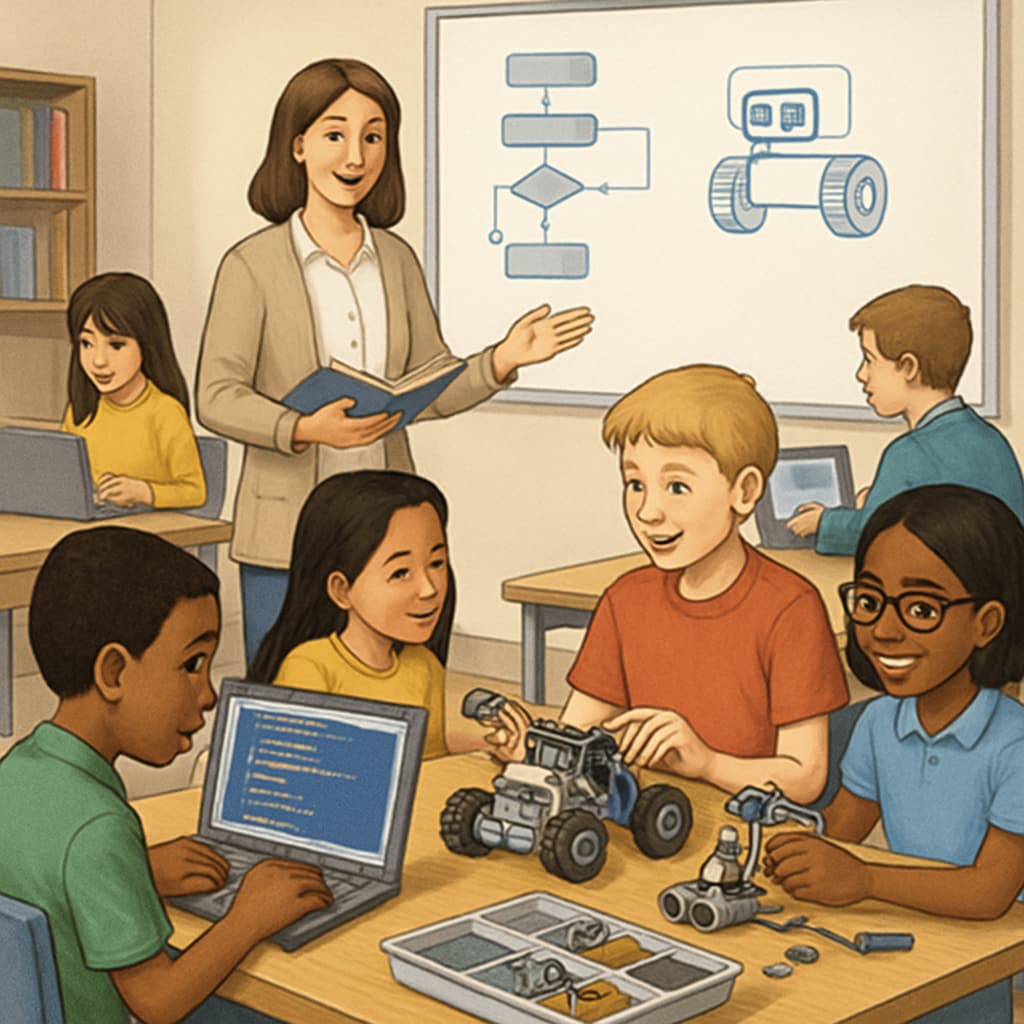American high schools are at a crossroads where the need for curriculum reform has become evident. The current focus on humanities subjects, while important, often comes at the expense of STEM education, future-oriented skills, and emotional intelligence training. Without deliberate action, the imbalance in high school curricula risks limiting the ability of students to adapt to a rapidly evolving world driven by technology and innovation.
Why STEM Education Deserves Priority
STEM (science, technology, engineering, and mathematics) education is crucial for equipping students with the skills to thrive in the 21st century. Advances in artificial intelligence, biotechnology, and renewable energy demand a workforce proficient in these areas. However, many American high schools still allocate disproportionate time to subjects like literature and history, leaving insufficient room for STEM and practical applications of scientific knowledge.
To illustrate, the Bureau of Labor Statistics projects that STEM-related occupations will grow significantly faster than the average for all other industries. In addition, countries like China and Germany have already begun prioritizing STEM education as a cornerstone of their educational systems, putting American students at risk of falling behind in global competitiveness.

The Role of Humanities: A Necessary Adjustment
Humanities subjects such as literature, history, and arts nurture critical thinking and cultural understanding. Yet, the excessive weight given to these areas in high school curricula often overshadows more future-critical domains like computational thinking, data literacy, and emotional intelligence development.
This calls for a recalibration rather than elimination. For example, history courses could integrate lessons on technological impacts on society, while literature classes might focus on ethical dilemmas in scientific advancements. Such interdisciplinary approaches allow students to engage with humanities while connecting them to STEM-related challenges.

Emotional Intelligence and Philosophical Thinking: The Future Core Skills
Beyond STEM, the future workforce will require emotional intelligence (EQ) and philosophical thinking to navigate complex interpersonal relationships and ethical dilemmas. Research from organizations like the World Economic Forum has highlighted EQ as one of the top skills needed for jobs in the future.
Incorporating EQ-focused courses—such as conflict resolution, teamwork, and empathy training—into high school education can complement technical skills. Similarly, philosophy can teach students to evaluate the societal impacts of technological innovations, fostering thoughtful and ethical decision-making.
Steps Toward Curriculum Reform
To achieve a balanced curriculum, policymakers and educators can take the following steps:
- Reduce redundancy in humanities courses by focusing on interdisciplinary approaches.
- Expand STEM offerings, including coding, robotics, and advanced mathematics.
- Introduce mandatory EQ and philosophical thinking courses to prepare students for the ethical challenges of the future.
- Collaborate with industry leaders to align high school curricula with workforce demands.
As a result, students will graduate with a diverse set of competencies, ready to excel in both technical and interpersonal domains.
The Path Forward
Rebalancing American high school education requires bold changes to the traditional curriculum structure. By prioritizing STEM education, interdisciplinary humanities, and future-oriented skills like emotional intelligence, schools can better prepare students for the challenges and opportunities of tomorrow. This transformation is not merely a matter of academic reform—it is an investment in the future of the nation.
It’s time for American high schools to embrace a new educational paradigm that equips students with the tools to succeed in a world defined by technological innovation and complex human dynamics.


